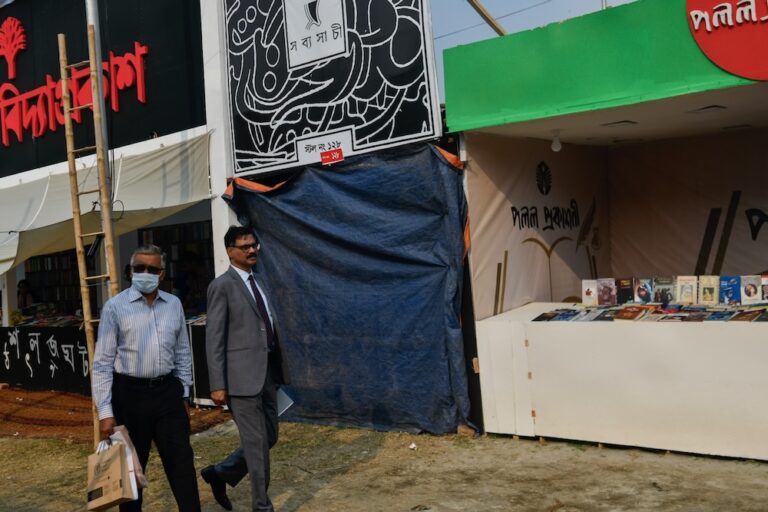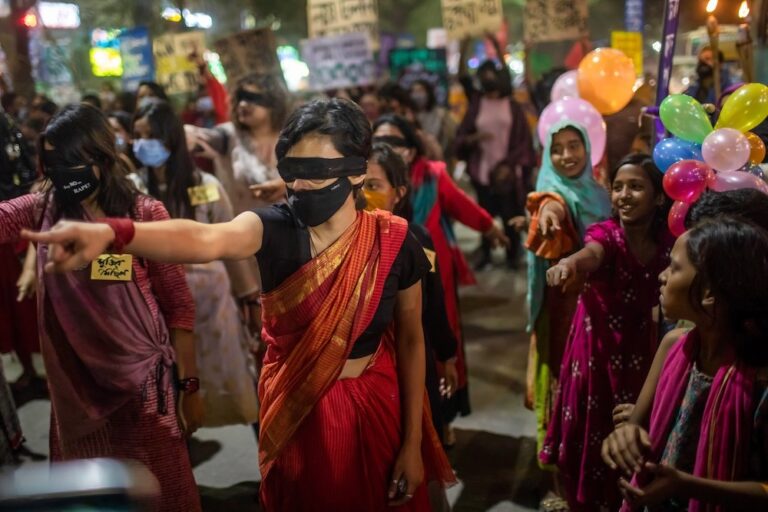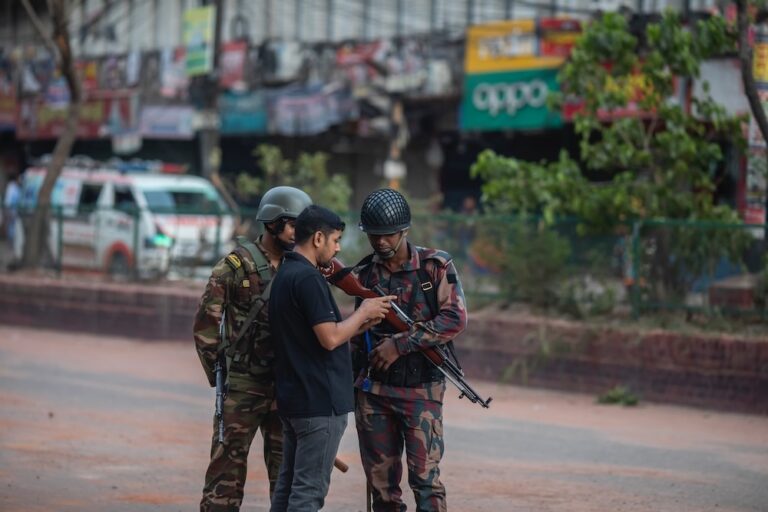The International Press Institute condemned two recent attacks on journalists in Bangladesh and called on authorities to conduct full investigations.
(IPI/IFEX) – On 20 February 2013, the International Press Institute (IPI) today condemned two recent attacks on journalists in Bangladesh and called on authorities to conduct full investigations into the incidents.
News website bdnews24.com reported that Senior Correspondent Sumon Mahbub was targeted on the night of 19 February by the driver of a vehicle who struck Mahbub as he rode his motorcycle and fled the scene, leaving Mahbub with injuries to his hands and legs.
Mahbub, who said he was traveling home from covering the ongoing Shahbagh protest movement at the time of the incident, told the website: “I tried to let the car pass by slowing down my motorcycle towards the left of the road. But the car deliberately hit me on an empty road and I was thrown off the bike . . . This was a planned attack. I have no doubts.”
The attack on Mahbub followed reports last week that unidentified individuals targeted the Dhaka offices of daily newspaper Naya Diganta on 12 February during a series of violent clashes between activists and police. Local media reported that a group of men set fire to a microbus in front of the newspaper’s offices and press, and that part of the offices caught fire before employees doused the flames.
Some media identified the men as supporters of the Islamist Jamaat-e-Islami party and its student wing, Islami Chhatra Shibir. Local accounts said men from the groups launched violent attacks near the Karwan Bazar and in other parts of the city that led to the clashes with police and left scores injured.
However, a representative of Naya Diganta, which is owned by Jamaat leader Mir Quashem Ali, attributed the attack on the newspaper to supporters of the ruling Awami League. The representative claimed that the men were chanting pro-government slogans during the attack and he accused police officers in the area at the time of turning a blind eye.
The representative said that the officers instead detained newspaper staff members for questioning, and that those staff members currently remain in police custody. He also accused police of having “failed to carry out any effective investigation or arrest any of the perpetrators”.
IPI Deputy Director Anthony Mills said: “Resorting to violence to express political disagreement is never acceptable. We urge authorities to conduct swift, full and transparent investigations into these incidents, and to demonstrate that those who attack the media may not do so with impunity.”
The president of Bangladesh’s National Press Club, Kamal Uddin Shabuj, similarly condemned the attack on the Naya Diganta offices, urging “the Government and the law enforcement agencies to carry out a [through] investigation into the incident and arrest the attackers within [a] very short time”.
Last week’s violence came in the wake of the rise of the Shahbagh protest movement, which began on 5 February after a war crimes tribunal sentenced Abdul Quader Mollah, another Jamaat leader, to life in prison for having committed crimes against humanity during the 1971 war with Pakistan that led to Bangladesh’s independence. Participants in the Shahbagh movement have called for the death penalty for Mollah and other war criminals. They have also called on legislators to ban Jamaat, which opposed independence during the 1971 war.


